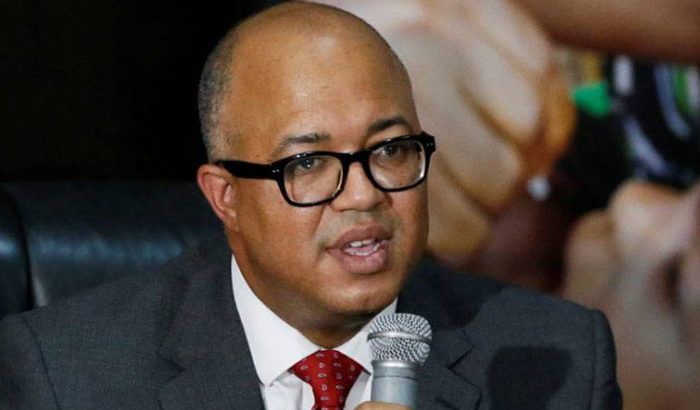Patients who stop showing Coronavirus symptoms —fever and respiratory, will be discharged without waiting for a laboratory negative test.
Besides, those who fail to show symptoms after testing positive will be discharged 14 days after, the Nigeria Centre for Disease Control (NCDC) said on Thursday while unveiling the new treatment protocols.

The NCDC said this followed new data from Singapore that showed that RNA detected beyond 10 days is no longer infectious as no viable virus is grown by a viral culture. Such patients will be asked to go home but advised to continue self-isolation one week after discharge.
Director-General of NCDC Dr. Chikwe Ihekweazu, who spoke at the daily briefing of the Presidential Task Force on COVID-19, in Abuja, said: “There have been new science emerging about the duration of infectivity of individual patients. It led to the WHO issuing new clinical guidelines.
“We then convened colleagues across our organisation, the department of hospital services of the Federal Ministry of Health, as well as other colleagues with whom we work, to review our guidelines and issue new guidelines for the country, and of course adapting it to local circumstances.
“The key thing is that the management of COVID-19 will be made primarily supportive; we don’t have any treatment so far that has any proven impact on morbidity.
“One of the major changes that have happened is the discharge criteria. While these guidelines are obviously and primarily targeted at physicians managing patients, it is important that patients and people know. There are two groups of patients – symptomatic and asymptomatic patients.
“For symptomatic patients, they may now be discharged at least 10 days after symptoms onset and at least three days without symptoms. If your symptoms last for longer, we will wait for longer managing you supportively.
“If you are asymptomatic, you can be discharged 14 days after your first positive test. So, we no longer have to wait for a negative test to discharge. This way you can go home with confidence that you are no longer infective and you’re not putting your family and friends or anyone else at risk.
“We are not encouraging that people be discharged while they are still symptomatic. We are talking about discharging people that are asymptomatic and have recovered. That is, you are symptomatic and have recovered or you are completely asymptomatic throughout your clinical episodes.
“At that point, you really don’t need more clinical interventions, even at home; you just need time to recover. It is just like you recover from any other illness. You don’t need any special intervention once you have been discharged.
“Change is difficult because we have been saying you have to have the negative test. Even though we have published these results, many physicians are still not using them. We can assure them and everyone managing cases that 14 days after, in fact, 10 days is what the evidence says.
“But we have added 14 days to make it two weeks for people to then discharge for patients that are asymptomatic.”
Concerning the use and availability of personal protective equipment (PPEs), the NCDC boss urged both public and private hospitals to procure their PPEs and factor it into the cost for health care delivery.
He said: “Our hospitals both public and private, really need to include the purchasing of personal protective equipment in their procurement plans. These are things that they have to buy to keep their hospital going.
“What we are doing now is simply a response to an outbreak – managing logistics, sending around PPEs across the country. This is definitely not what we should be doing as a country. So, that has to change as we refigure our health system to include this.
Yes, these things are expensive but you have to include it. Healthcare can become expensive but whatever the cost, it has to be factored into the cost of delivering healthcare. There is no point in having a doctor or a nurse working if they cannot have the personal protective equipment that they need.
“We need to push harder as doctors, nurses, medical lab scientists, to ensure that there is running water in our clinics, and insist on these things.
“Patients are encouraged to ask questions of their doctors when next he or she wants to attend to them without a face mask or hand glove.”